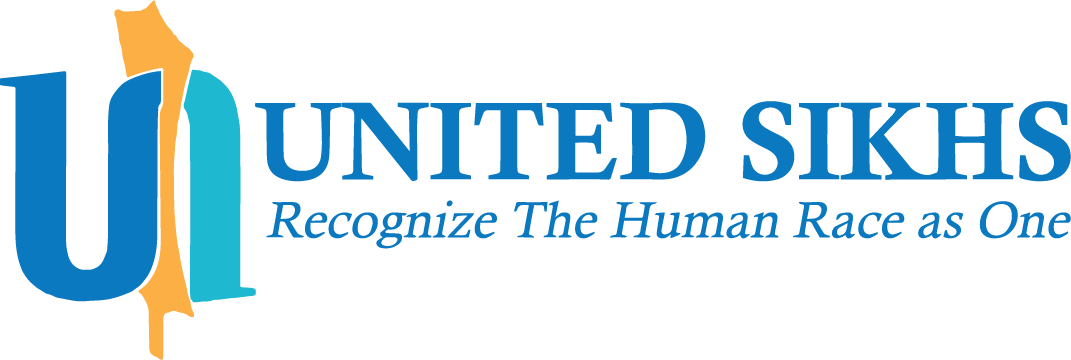Timeline:
- Nov. 2010: UNITED SIKHS first joined a Motion for Leave to File an Amicus Brief (“Friend of the Court” Brief) that was submitted to the Supreme Court
- March 2011: Certiorari was granted (Supreme Court agrees to hear the case) for Hosanna-Tabor Evangelical Lutheran Church and School
- June 2011: UNITED SIKHS provides input, edits, and comments on the Amicus Brief before submission to the Supreme Court
- Oct. 2011: Oral arguments took place in the Supreme Court; decision pending
Washington, D.C.: UNITED SIKHS and other faith based organizations, earlier this summer, joined in the submission of an Amicus Brief to the Supreme Court in support of the position that preserves the integrity of the ministerial exception, which religious institutions have the right to claim in matters of employment. An Amicus Brief allows organizations who are not direct parties to the law suit, but have a strong/ core interest in the outcome, to submit arguments that assists the court in evaluating the broader implications of the court’s decision in the matter.
At the heart of the ministerial exception is whether religious entities can require their employees to uphold the religious tenants of the institution and can make decisions on the hiring and firing of those who are charged with religious teaching without the threat of court involvement in religious matters.
UNITED SIKHS’ interest in this case stems from the challenges minority religious institutions would face if the ministerial exception is eliminated or excessively narrowed. Specifically, “[t]he complications inherent in civil courts’ efforts to distinguish between the sacred and secular activities of religious organizations are enhanced with respect to minority religions whose beliefs and rituals are poorly understood.”
One example in the Amicus Brief discusses the Sikh tradition of langar. The Brief argues that “seemingly secular activities take on deep religious significance within specific faith traditions. For Sikhs, for example, operating a community kitchen and providing meals (langar) to the needy and vulnerable is an indispensable element of religious worship.” (emphasis added).
In one of the most challenging cases to come before the Supreme Court this term, the Hosanna-Tabor case represents a classic battle between 1st Amendment principles of free exercise and the establishment clause (religious practice and state/ church separation clauses) weighed against civil rights protections for those facing unlawful termination by their employers (i.e. discrimination, retaliation cases).
Professor Garnett, Notre Dame Law School, succinctly lays out the complexity of this case in stating that:
“The hard question . . . is how to craft reasonably clear, usable doctrines that will capture, and give effect to, the basic principle that one dimension of religious freedom is the freedom of religious communities to choose their own ministers. It would not be enough to say that only “ordained, full-time clergy” are covered. (Indeed, such a narrow exception would, in practice, treat some religious traditions and communities worse than others.)”
This is precisely why faith based groups from all denominations, including UNITED SIKHS, stepped forward to voice their concern about secular courts entangling themselves in religious doctrine. It is clear, both domestically and internationally, that when courts begin to examine religious practice and doctrine, especially the religious practice and doctrine of minority faiths, we lose.
During oral arguments in front of the Supreme Court, Professor Laycock (counsel for the Church), stated that a minister is one who “holds ecclesiastical office in the church or who exercises important religious functions, most obviously, including teaching of the faith.” (emphasis added). In Sikhism, where there is no hierarchy or priestly class when it comes to dissemination of religious teachings, such an exemption is important to ensure that those who do not uphold the religious tenants of Sikhism, be terminated from their positions without courts evaluating and ultimately ruling on what religious interpretation is correct.
This case centers on this very issue. Cheryl Perich was hired as a teacher at Hosanna-Tabor Evangelical Lutheran Church and School, where she taught secular subjects, but also taught religious classes, conducted chapel services, and led her students in prayer as a “called teacher” who earned a certificate of mission into the church’s “teaching ministry.” Nonetheless, she informed the Church that she was going to potentially file a discrimination claim against them. The Church then fired her for not upholding the religious teachings of the Church that mandated following an internal conflict resolution process.
One can clearly see why when judges weigh religious doctrines of a particular faith, this would inevitably lead to entanglement of church and state. Undoubtedly, minority faiths are especially at risk to having their religious doctrines misinterpreted, and because many religious organizations (of minority faiths) have employees that may not fall under a strict definition of “minister,” they may not receive the same benefits (namely, the protection of the ministerial exception) that other dominant/ recognized religions receive.
UNITED SIKHS recognizes the competing interests in this case and the difficulty that arises when two protected rights come into conflict. However, as Justice Alito stated during oral argument, the 1st Amendment Establishment Clause was central in “preventing the government from choosing ministers.” Yet, without having an expansive definition of who constitutes a “minister,” many minority faiths will fall outside the very necessary protections provided within the “ministerial exception.”
Support our advocacy work to put an end to hate and discrimination against Sikhs.
Volunteer with UNITED SIKHS, and Donate to our civil rights advocacy projects.
Issued by:
Hansdeep Singh
Senior Staff Attorney
UNITED SIKHS
law-usa@unitedsikhs.org
646-688-3525








